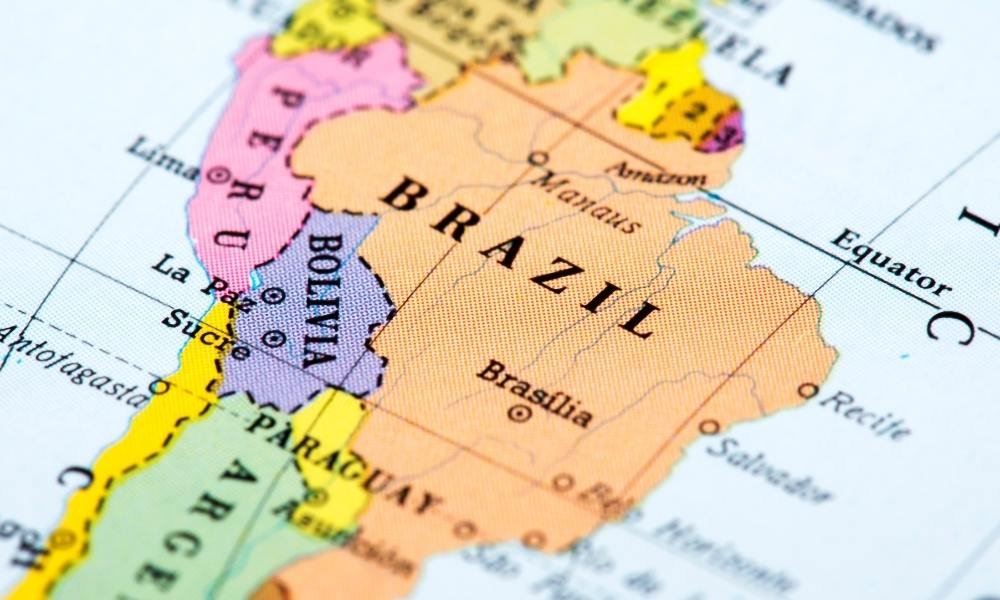Olfactory Coffee Roasters
Olfactory has been roasting coffee in Cornwall for almost a decade.
The name is attributed to the location of their roastery, an old factory.
The Olfactory dream began in 2010 with a couple that became obsessed with coffee during their university studies in Cornwall.
It was rather difficult trying to keep the late nights of study going over a cup of stale, over-roasted coffee that tasted of rubber, produced by a tired commodity focused industry.
They envisioned Olfactory with a set of specific values that meant it running for the long term – quality, transparency and ethical trading.
To this day, these values have not changed.
Being the cooperative members farming quarter of a hectare of land in a remote region in Kenya, or the super high-tech farm producing experimental varietals in Brazil, we seek the best and most exciting coffees.
The team will then extensively experiment, profile and roast those coffees to bring out the exciting flavours and characteristics and offer them at their peak of freshness and deliciousness.
The Origin
The La Loma coffee from Olfactory Coffee Roasters originates from the Antioquia region of Colombia.
Located in the mountainous terrain and temperate climates of southwest Antioquia, Finca La Loma, translating to “the Green Hills”, has the perfect climate for producing excellent quality coffee.
In this ideally situated terrain, the Guerra family has dedicated 20 of their 22.2 hectares to coffee, with the rest of the farm being utilised for livestock.
Having owned the neighbouring farm of Finca Las Mercedes since the 1960s, Alfonso Guerra purchased Finca La Loma in 2005 with aim of further expanding their business.
Today, the Guerra family farms are now primarily managed by Alfonso’s son, Juan Carlos, and his grandchildren. This means that five generations of the Guerra family have tended the lands of Cuidad Bolivar.
With years of experience passed down through generations, the Guerra family’s mission is to produce consistent, high quality coffee, whilst taking responsibility for the environment they work within.
Under Juan Carlos’ influence, the farm has increasingly focused on quality improvements and speciality coffee production. Finca La Loma’s 140,000 Caturra, Colombia and Castillo trees are painstakingly maintained, aiming to marry productivity with environmental stewardship. Plots are fertilised twice a year and all control of pests and illnesses are done using products that are certified as being friendly to wildlife.
One strategy in the farm’s efforts to move towards speciality coffee has been to invest in experimental processing techniques and lot differentiation.
This La Loma lot has been selectively hand harvested, before being delivered to the Green Hill’s state-of- the-art mill, where it is sorted for quality firstly by machine and then by hand. The approved coffee fruit is next placed in tanks for a long period of extended fermentation.
Here, cherries are fermented for 204 hours, before being eco-pulped. Making sure to leave the mucilage intact, the coffee is next sun dried on both raised beds and patios, where it is regularly turned until it reaches optimal humidity. Once dry, the coffee is milled to remove any remaining mucilage.
What To Expect
Here’s an idea of what to expect from this honey processed Colombian Coffee from Olfactory Coffee Roasters.
Team Batch brew method of choice - Cafetiere.
If you loved this coffee and want it to have it in your life again order directly from Olfactory Coffee Roasters now.
Download Our Free Brew Guide PDF
BOX 54
18•05•22
The Origin
The Cruzeiro coffee from Olfactory Coffee Roasters originates from the Cerrado Mineiro region of Brazil.
Purchased in 2009 by Cláudio Ottoni, the farm started with 130 hectares planted under coffee. Today the coffee plantation has expanded to 200 hectares.
Famous for producing mainly Red Catuai and Mundo Novo varieties, but only 5% of the land is dedicated to the Rubi variety which Olfactory have been purchasing for the past 4 years.
The coffee improves with every harvest, as well as their relationship with the farm.
The Ottoni family always seeks to use the most sustainable growing practices and stewardship of the land. Over 140 hectares of the farm is devoted to wildlife preservation.
Additionally, the Cruzeiro Farm now works with no water waste and has Implemented agro-ecological means of reducing and (in many cases) completely eliminating the use of herbicides.
Some of these methods include planting plant species nearby the coffee trees that will attract and trap bugs and insects before they are able to infect the cherries.
Coffee Harvest Cruzeiro. Photo - Mercanta
The discarded coffee pulp produced during the de-pulping of coffee cherries is recycled as compost and applied to the coffee plants. This serves to re-invigorate soil fertility and to help the coffee plant absorb more water and nutrients.
Silos at Cruzeiro. Photo - Mercanta Coffee
The biggest innovation that Cruzeiro has implemented with regards to quality is the use of silo dryers in the processing of their coffee.
These silos are commonly used for seeds and other grains and help control and manage the drying process. Their use in drying coffee has produced excellent results in the cup due to the slower drying process under controlled temperature, which increases uniformity and prevents over-fermentation.
Even more importantly, perhaps, the silo drying process doesn’t ‘kill’ the bean, meaning that the bean can be replanted after being dried.
Cruzeiro Sun Dried Naturals - Photo: Mercanta
What to Expect
Here’s an idea of what to expect from this natural Brazilian coffee from Olfactory Coffee Roasters.
Team Batch brew method of choice - Cafetiere
If you loved this coffee and want it to have it in your life again order directly from Olfactory Coffee Roasters now.
















